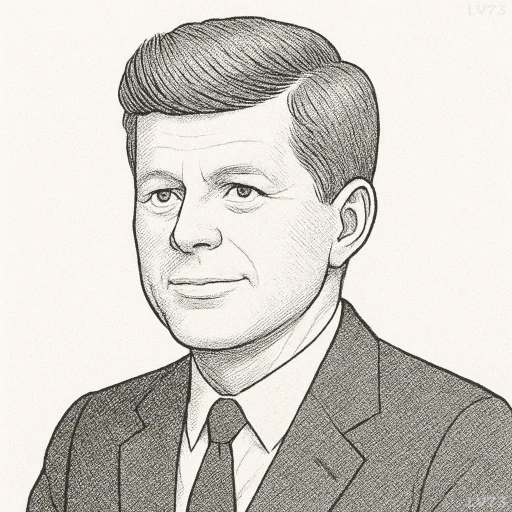“Peace is a daily, a weekly, a monthly process, gradually changing opinions, slowly eroding old barriers, quietly building new structures.”

- May 29, 1917 – November 22, 1963
- American
- Politician
table of contents
Quote
“Peace is a daily, a weekly, a monthly process, gradually changing opinions, slowly eroding old barriers, quietly building new structures.”
Explanation
In this statement, John F. Kennedy underscores the idea that peace is not a single, dramatic event, but a continuous and deliberate process. He emphasizes that peace is built through sustained efforts over time, requiring a gradual shift in public opinion and the breaking down of long-standing divisions. The process of creating peace involves small, incremental changes—shifting attitudes, fostering understanding, and dismantling barriers—rather than relying on quick fixes or immediate solutions. Kennedy’s words suggest that peace is not just about ending conflict, but about creating the conditions for lasting harmony and cooperation, which often takes years of effort and collaboration.
The idea that peace is a “daily” and “quiet” process is particularly important in the context of the Cold War era during which Kennedy spoke. The world was locked in a tense standoff between the United States and the Soviet Union, with the threat of nuclear war looming large. Kennedy understood that achieving peace required more than just political agreements or military strategy; it required changing the mentalities and attitudes of people on both sides. It also involved building trust through diplomacy, communication, and mutual understanding. His approach to peace emphasized the slow and steady work of constructing lasting relationships rather than pursuing fleeting or superficial solutions.
In a modern context, this quote is still relevant, particularly in efforts to address global challenges such as climate change, economic inequality, and international conflicts. Achieving peace in these areas also requires time, patience, and persistent effort. It involves not just political leaders but also grassroots movements, dialogue, and an evolution of mindsets. Kennedy’s message reminds us that peace is not the end of a conflict, but the beginning of a new chapter—one that requires continuous work, open communication, and the building of new, more inclusive systems. His vision of peace as a gradual, evolving process calls for collective action and the willingness to engage in long-term efforts for the betterment of all.
Would you like to share your impressions or related stories about this quote in the comments section?

